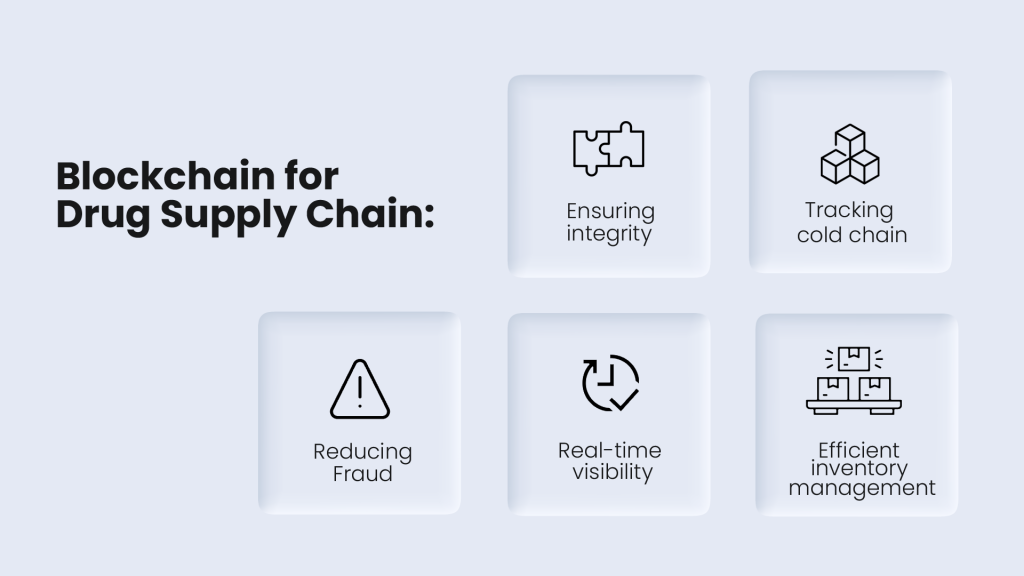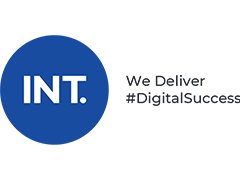
Data interoperability is a buzzword that has gained traction throughout the healthcare industry. This usually comes with multiple levels, including semantics, foundational, and structural.
At the same time, data standardisation and privacy are key concerns, since the system should enable interoperability of data with full consent, trust, and permission support.
Blockchain can thus add a whole new dimension to healthcare data management while solving several interoperability challenges simultaneously. It ensures a proper framework for anonymised information while making sure that the data cannot be modified, forged, or tampered with.
Blockchain can thus add a whole new dimension to healthcare data management while solving several interoperability challenges simultaneously. It ensures a proper framework for anonymised information while making sure that the data cannot be modified, forged, or tampered with.
Authenticity and data security are major worries that are solved with this technology and the owner of data through smart contracts can make it more accessible across treatment sites and providers in a selective way.
Here are some of the vital aspects related to the impact of Blockchain on healthcare data interoperability.

Along with data interoperability, Blockchain has enabled better clinical trial management. Here are some core points worth noting in this regard:
Hence, Blockchain technologies can boost the quality and volumes of patients who are recruited for clinical trials. Distributed ledger technologies will help patients store medical information through anonymous mechanisms and it can be visible to recruiters who may reach out if the data is eligible for the trial.
Patient consent is another vital facet of healthcare data management and this is also enhanced by Blockchain. Here are some factors worth noting in this regard:
These are some of the ways in which Blockchain technologies contribute immensely towards enabling patient consent and putting data management in their hands.

Blockchain technology also helps immensely in terms of drug supply chain management. Here are some aspects that can be highlighted in this regard:

Hence, Blockchain technology is a game-changer in terms of ensuring seamless data interoperability in the healthcare industry and also ensuring better consent management, clinical trials, and drug supply chain management. The possibilities are endless in terms of reshaping and refining these systems to ensure the best possible outcomes for the sector.
1.How does blockchain improve the accuracy and integrity of healthcare data during interoperability?
Blockchain greatly improves the integrity and accuracy of healthcare information during interoperability. This is possible with the immutable nature of data that is securely stored on its networks. Blockchain enables one version of the truth that cannot be tampered with.
2.What are the potential cost savings and efficiency gains from implementing blockchain for data interoperability in healthcare?
There are several benefits of using Blockchain for healthcare data interoperability. The first one is the higher efficiency involved in secure storage of immutable records with full authenticity and the second one is the lower cost involved in the process. Along with data security and authenticity, financial losses due to data breaches and losses are also prevented.
3.Are there any real-world examples or success stories of blockchain’s impact on data interoperability in the healthcare industry?
There are numerous real-world success stories and examples of how Blockchain has positively affected data interoperability in the healthcare sector. For example, several healthcare stakeholders are already using this technology to ensure authentic data for clinical trials. At the same time, smart contracts are being used for securely storing patient data.
4.What are the main challenges in achieving data interoperability in healthcare, and how can blockchain help overcome them?
Some challenges exist in terms of data interoperability in the healthcare sector and Blockchain solves them with ease. These include the absence of data standardisation, security, privacy, consent, and technological expertise. Blockchain ensures a secure and standardised way of storing verifiable records with full consent and privacy.

